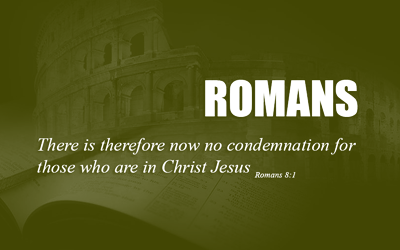Romans 6:1-11
Remain in sin so that grace may increase? Died to sin. Buried with Christ. No longer be enslaved to sin. Death leads to life. Once for all.
(Bấm vào đây để đọc tiếng Việt)
REMAIN IN SIN SO THAT GRACE MAY INCREASE?
 "1What shall we say then? Are we to remain in sin so that grace may increase? (Romans 6:1)
"1What shall we say then? Are we to remain in sin so that grace may increase? (Romans 6:1)
To understand the context for verse 6:1, we must return to verses 20 and 21 of the previous chapter: “Now the law came in so that the transgression may increase, but where sin increased, grace multiplied all the more, so that just as sin reigned in death, so also grace will reign through righteousness to eternal life through Jesus Christ our Lord (Romans 5:20-21).”
We must also recognize that sin existed in the world before the arrival of the law. According to Romans 5:12, “sin entered the world through one man [Adam],” and this occurred long before the Ten Commandments were given to mankind. So, while the law does not increase sins, it does raise man’s awareness of sin. And in doing so, it convicts them in order to lead them to Christ (Galatians 3:24) so that they may be saved by grace.
DIED TO SIN
“2Absolutely not! How can we who died to sin still live in it?3Or do you not know that as many as were baptized into Christ Jesus were baptized into his death? (Romans 6:2-3)
The conventional wisdom holds that dying to sin entails ceasing to sin. Nothing could be further from the truth, because, as we will see in Romans 7:18-19, which we will study next, “For I know that nothing good lives in me, that is, in my flesh. For I want to do the good, but I cannot do it. For I do not do the good I want, but I do the very evil I do not want!” In this regard, you are far from being dead to sin. Because if Paul is literally dead to sin, he will have less to struggle with.
As a result, while we are not literally dead to sin, we can “consider” ourselves to be, as we will see in verse 11 at the end of this article. The literal, but incorrect, interpretation of being dead to sin as stopping sinning will cause havoc in the lives of believers because it is an impossibility that no one, including the preacher, can ever achieve.
Being dead to sin can only mean that sin no longer has the power to condemn those who are in Christ.
Therefore, my brothers, you also died to the law through the body of Christ, that you might belong to another, to Him who was raised from the dead, in order that we might bear fruit to God. (Romans 7:4)
This is how you die to sin: you die to the law through the body of Christ.
BURIED WITH CHRIST
“4Therefore we have been buried with him through baptism into death, in order that just as Christ was raised from the dead through the glory of the Father, so we too may live a new life. 5For if we have become united with him in the likeness of his death, we will certainly also be united in the likeness of his resurrection. (Romans 6:4-5)
Are you familiar with the Buddhist concept of self-annihilation? Other religious endeavors may have similar terms, but they all point to the ultimate goal of destroying the self, which is a hindrance to their highest spiritual achievement. We are given the free gift of being buried with Christ, which also means we are dead to sin, so our sin debt is all paid for, and we are free from this law: “the soul that sins, it shall die” (Ezekiel 18:20).
NO LONGER ENSLAVED TO SIN
“6We know that our old man was crucified with him so that the body of sin would no longer dominate us, so that we would no longer be enslaved to sin. 7(For someone who has died has been freed from sin) (Romans 6:6-7).
We are no longer enslaved to sin only in the sense that we can consider ourselves to have died through faith in Christ and being buried with him. Sin is missing the mark of God’s perfection, which we do on a daily basis. As a result, those who attempt to interpret it literally will be disappointed and will miss out on the joy of salvation that should be theirs as they rest in Christ’s finished work.
DEATH LEADS TO LIFE
“8Now if we died with Christ, we believe that we will also live with him. (Romans 6:8)
We will live with Christ because we died with Him.
ONCE FOR ALL
“9We know that since Christ has been raised from the dead, he is never going to die again; death no longer has mastery over him. 10For the death he died, he died to sin once for all, but the life he lives, he lives to God. 11So you too consider yourselves dead to sin, but alive to God in Christ Jesus. (Romans 6:9-11)
For thousands of years, man’s common approach to the redemption of his sins has been a never-ending process of offering various types of sacrifices. But Jesus’ sacrifice was intended to put an end to it all. He will never, ever die again. His death finally put an end to the problem of sin.
So, why do Christians continue to make sin the focal point of their relationship with God? Wouldn’t the Holy Spirit indwelling them be powerful enough to produce fruit in their lives if they kept their gaze fixed on Jesus? If sin remains an unresolved issue in your life, I reserve the right to question whether you believe in the true gospel at all, because Jesus will never die for your sins again. He died once and for all to present you to God blameless. You will continue to sin, but the Holy Spirit will point you in the right direction. You simply keep your gaze fixed on Christ rather than your sins, because the more obsessed you are with them, the deeper you sink.
Nghi Nguyen
- Scripture quoted by permission. All scripture quotations, unless otherwise indicated, are taken from the NET Bible® copyright ©1996-2006 by Biblical Studies Press, L.L.C. All rights reserved.
Disclaimer: This is my own opinion on the topic, which does not necessarily reflect the church's theology, or beliefs of the individuals in it — Nghi Nguyen
